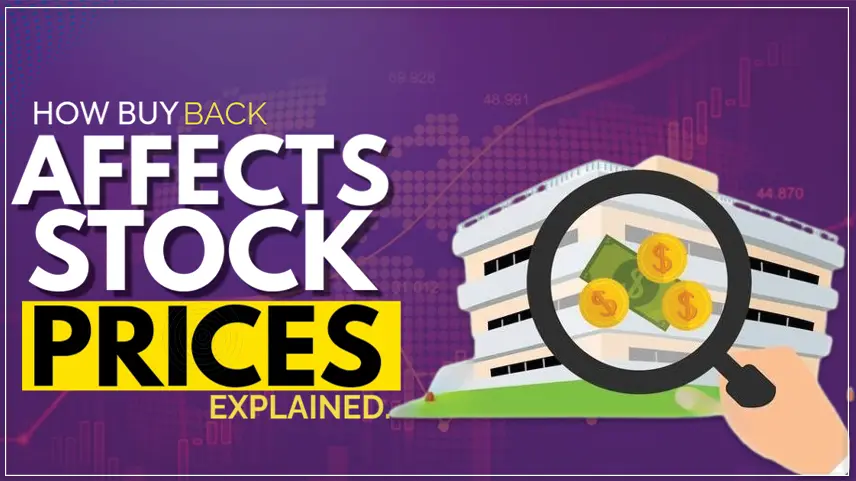How Buyback Affects Stock Prices: Explained
Buyback, also known as the repurchase of shares, is common in the stock market. It occurs when a company buys back its own shares from the market, reducing the number of outstanding shares. This article will explain the concept of buyback and its impact on stock prices, as well as the reasons why companies engage in this practice.

What is stock buyback definition?
A stock buyback is also known as the repurchase of shares. Buyback meaning is a company buys back its own shares from the market. Buyback stock reduces the number of outstanding shares, increasing the value of each remaining share. The company can either retire the shares or hold them as treasury stock. Buybacks can be done through open market purchases or through a tender offer to shareholders. Buyback by listed company can have various reasons, including to increase shareholder value, boost earnings per share, and signal confidence in the company's future.
Why do companies engage in stock buybacks?
Companies engage in stock buybacks for various reasons, including to increase shareholder value, boost earnings per share, and signal confidence in the company's future. By reducing the number of outstanding shares, the value of each remaining share increases, which can lead to a rise in stock prices. Additionally, buybacks can be a more tax-efficient way to return value to shareholders compared to dividends. However, critics argue that buybacks can also be used to inflate stock prices and benefit executives with stock-based compensation artificially.
One of the main reasons companies engage in stock buybacks is to increase shareholder value. By reducing the number of outstanding shares, the value of each remaining share increases, which can lead to a rise in stock prices. This can be particularly beneficial for companies with excess cash, as it allows them to use that cash to buy back shares and potentially boost their stock price. Additionally, buybacks can be a more tax-efficient way to return value to shareholders compared to dividends, as they are typically taxed at a lower rate. However, critics argue that buybacks can also be used to artificially inflate stock prices and benefits executives with stock-based compensation, rather than truly benefiting the company and its shareholders. As with any financial decision, it's important for investors to carefully consider the potential risks and benefits of stock buybacks before making any investment decisions.
Buyback effect on share prices
Buyback for a stock can positively impact share prices in the short term, as it reduces the number of outstanding shares and increases earnings per share. This can make the company more attractive to investors and increase demand for the stock, driving up the price. However, the long-term impact on stock prices is unclear and depends on factors such as the company's financial health, market conditions, and investor sentiment. It's important to consider the potential risks and benefits of a stock buyback before making any investment decisions.
Conclusion
A stock buyback can have a significant impact on stock prices in the short term, but its long-term effects are less clear. It's important to consider the company's financial health, market conditions, and investor sentiment before making any investment decisions related to a stock buyback. By understanding the concept of buyback and its potential impact on stock prices, investors can make informed decisions and minimize their risks in the stock market.

0 comments